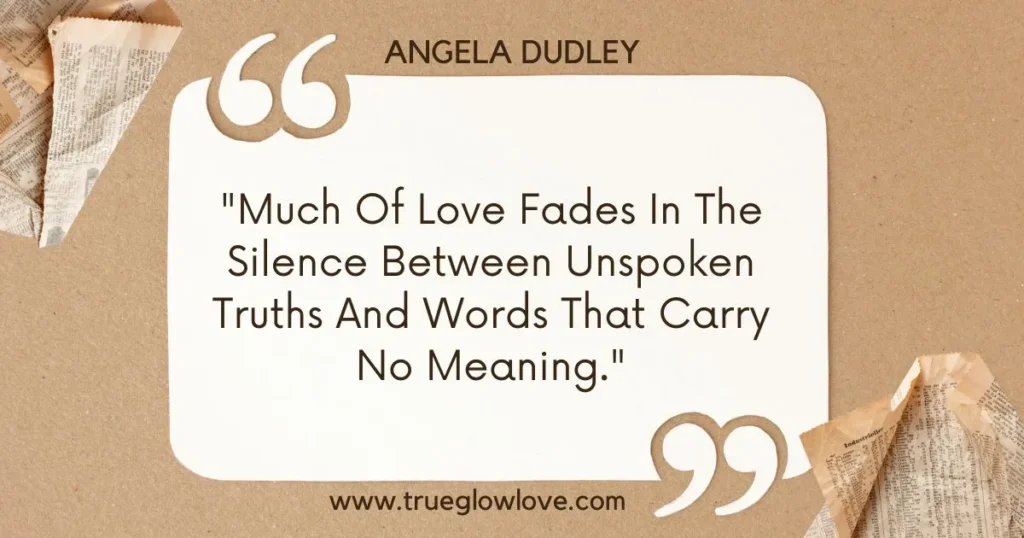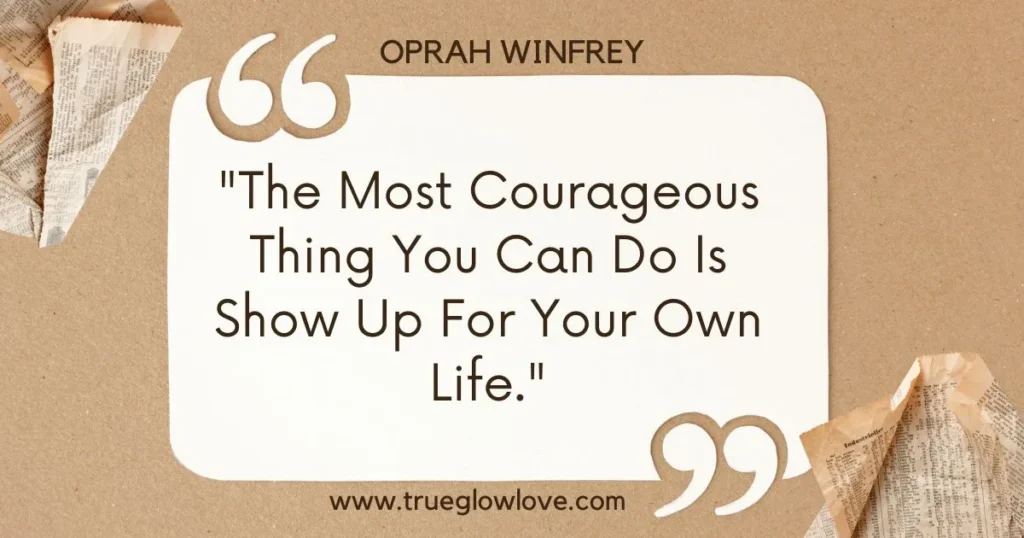How to Respond When My Husband So Harsh With Me
Does it feel like you’re constantly holding your breath, waiting for the next sharp comment? One minute, things are fine, and the next, a harsh word from your husband cuts deep, leaving you feeling small, confused, and utterly exhausted. It’s a painful cycle. The sting of his words, the coldness in his tone—it chips away at your confidence and leaves you wondering what you did wrong.
If you’re reading this, chances are you’re feeling hurt, tired, and desperately trying to understand why the man you love is so harsh with you. Please know, you are not being overly sensitive, you are not making things up, and you are not alone in this experience. Your feelings are a valid and natural response to being wounded. The confusion and self-doubt that creep in after a harsh exchange are real, and they are heavy burdens to carry day in and day out.
This isn’t just another article that will tell you to “try to see his side.” This is a guide to understanding what might be happening beneath the surface, and more importantly, it’s a roadmap to help you find your voice. We’re going to walk through the potential reasons for his behavior, “My Husband So Harsh With Me“, help you figure out how to respond in a way that protects your peace, and explore how to build a more respectful relationship, or find the strength to make a change. You deserve to feel safe, seen, and cherished in your own home.
Table of Contents
First, Let’s Define ‘Harsh’: Is It a Bad Mood or a Painful Pattern?
Everyone gets grumpy. We all have bad days where we’re short-tempered or irritable. But there’s a massive difference between an occasional off day and a consistent pattern of harshness that becomes the normal atmosphere of your home. When you find yourself constantly bracing for impact, that’s not just a bad mood; that’s a toxic dynamic that needs to be addressed.
Validating your experience starts with putting a name to the behaviors. Does any of this sound familiar?
- Constant Criticism: It seems like nothing you do is ever quite right. From the way you load the dishwasher to the way you handle a situation with the kids, there’s always a “better” way you would have done it. The praise is silent, but the criticism is loud.
- A Condescending Tone: This is one of the most painful forms of harshness. He talks down to you, using a tone that implies you’re less intelligent, less capable, or childlike. It’s not just what he says; it’s how he says it that makes you feel small.
- Impatience and Irritability: He seems to have a perpetually short fuse, especially with you. Small mistakes or simple questions are met with a sigh, an eye-roll, or a sharp, annoyed response that feels completely out of proportion.
- Dismissiveness: Your feelings, thoughts, and concerns are often ignored, brushed aside, or deemed unimportant. When you try to express that you’re hurt, you might be met with, “You’re being too sensitive,” or “It wasn’t a big deal.”
- Using Hurtful “Jokes”: He makes sharp, cutting remarks and then follows them up with, “I was just kidding!” This is a way to deliver a painful jab with a built-in escape hatch, leaving you feeling like you can’t even be upset without being accused of having no sense of humor.
- Unfavorable Comparisons: He might compare you negatively to others—his mother, a coworker, a friend’s wife—implying that you don’t measure up. This is a deeply damaging behavior that breeds insecurity.
It’s the consistent pattern that transforms simple disagreements into a toxic environment where you feel like you’re always walking on eggshells. When these behaviors become the norm, your nervous system is on high alert, and your home no longer feels like a haven.
The Big Question: Why Is My Husband So Harsh With Me?
Understanding the “why” behind your husband’s harshness is not about making excuses for his behavior. Let’s be clear: you are never responsible for your partner’s words or actions. However, looking at the potential root causes can sometimes demystify the situation, reduce the personal sting, and give you a clearer idea of what you’re truly up against. It shifts the focus from “What’s wrong with me?” to “What’s going on with him?”
Could It Be External Stress Bleeding Into Your Marriage?
Think of a person’s capacity for patience and kindness as a bucket. When that bucket is already filled to the brim with stress from work, financial worries, health issues, or family drama, there’s very little room left for anything else. The smallest thing can cause the bucket to overflow.
When a man is under immense pressure, he may lack the emotional bandwidth to be the patient, loving partner you know he can be. He may not realize it, but you might be the person he unconsciously unloads his stress on, simply because he feels most comfortable around you. While it’s not fair to you, understanding this can sometimes be the first step in addressing the real problem: his stress management, not your perceived flaws.
Is He Fighting a Battle on the Inside?
Often, what we see on the outside is a direct reflection of a war being waged on the inside. Sometimes, a person who is harsh on the outside is deeply unhappy on the inside. This internal struggle can stem from several sources:
- Deep-Seated Insecurity: A man who feels inadequate or insecure about his worth may resort to criticism to feel more powerful or in control. By pointing out flaws in others, he temporarily distracts from his own.
- Depression or Anxiety: These are not just “sadness” or “worry.” Clinical depression and anxiety can fundamentally change a person’s personality, often manifesting as irritability, anger, and a complete lack of patience. He may not even recognize these symptoms in himself.
- Unresolved Past Trauma: If he grew up in a home where he was constantly criticized or treated harshly, he may be repeating patterns he learned long ago. His behavior might be a deeply ingrained, almost automatic response that he has never questioned.
Was This Behavior Modeled for Him?
We learn how to communicate and exist in a relationship based on what we see growing up. If your husband grew up in a household where criticism was the primary language, where his father was harsh with his mother, or where expressing emotions was seen as a weakness, he may genuinely not know any other way to be. He is likely repeating a script that was handed to him in childhood. Again, this is an explanation, not an excuse, but it highlights that the problem may be a learned skill deficit, which, with effort, can be unlearned.
The Communication Chasm
This is perhaps the most common reason for marital strife. So many of us are simply never taught the skills for healthy, effective communication. He may feel frustrated, misunderstood, or unheard, but lacks the tools to express these feelings constructively. Instead of being able to say, “I’m feeling stressed about our finances and I need us to be a team,” it comes out as, “Why did you spend so much money on that?” The harshness is a clumsy, ineffective attempt to communicate a deeper need or fear.

This quote perfectly captures the communication chasm. His intended meaning might be buried under layers of harsh words, and the love gets lost in translation.
A Critical Line: Differentiating Harshness from Emotional Abuse
This is the most important section of this article. Your safety—emotional, mental, and physical—is paramount. While consistent harshness is deeply damaging to a relationship and your well-being, it’s crucial to recognize when it crosses the line into emotional abuse.
The difference is intent and pattern. Harshness can be a result of stress or poor skills. Emotional abuse, however, is a deliberate pattern of behavior designed to control, manipulate, and undermine you. It is a strategy to gain power over you by chipping away at your self-worth and independence.
Please read the following list carefully and honestly. If these behaviors feel familiar, you are dealing with more than just a communication problem.
Red Flags That It Might Be More Than Harshness:
- Control: He actively tries to control aspects of your life. This can look like monitoring your phone, telling you who you can and cannot see, demanding access to your passwords, or controlling the family finances to the point where you have no financial freedom.
- Isolation: This is a classic tactic of abuse. He systematically tries to cut you off from your support system—your friends and family. He might complain every time you want to see them, start fights before you go, or talk badly about them to turn you against them.
- Gaslighting: This is a manipulative technique used to make you doubt your perception of reality. When you confront him about his harsh words, he denies it, twists the story, and makes you question your sanity. Common gaslighting phrases include:
- “That never happened.”
- “You’re crazy, you’re making things up.”
- “You’re being way too sensitive/emotional.”
- “I never said that; you’re remembering it wrong.”
- Threats: These can be overt or veiled. He may threaten to leave you, threaten to harm himself, threaten to take the children, or make threats against your pets. The goal is to scare you into compliance.
- Humiliation: He doesn’t just criticize you in private; he intentionally shames or embarrasses you in front of others. He might tell unflattering stories about you, mock your opinions at a dinner party, or belittle you in front of your children.
If these signs are ringing true, your safety is the number one priority. This situation is beyond the scope of simple communication tips. This is a pattern of abuse, and you deserve support and a safe way out.
Please reach out for confidential, free help. You can call The National Domestic Violence Hotline at 1-800-799-7233 or visit their website at thehotline.org to chat online. They are available 24/7 and can provide you with resources and a safety plan. You are not alone.
Your Action Plan: How to Respond and Reclaim Your Peace
If you have determined that you are dealing with a pattern of harshness—not abuse—there are steps you can take to address the behavior and protect your emotional well-being. This action plan is focused on what you can control: your responses, your boundaries, and your choices. This isn’t about changing him; it’s about changing the dynamic.
Step 1: Anchor Yourself Before You Respond
When a harsh comment comes your way, the natural human reaction is to either fight back (get defensive) or flee (shut down). Neither is productive. Your first job is to manage your emotional response.
Your new strategy: Pause. Before you say a word, take one deep, slow breath. This tiny action can be a game-changer. It interrupts your knee-jerk reaction and gives your logical brain a split second to catch up with your emotional brain. Your first job is to regulate your own emotions. It’s perfectly okay to say, “I need a minute before I respond to that,” and even walk into another room to collect yourself. This isn’t about giving him the silent treatment; it’s about refusing to engage in a battle when your heart is racing.

Step 2: The Power of “I Feel” Statements
When you start a sentence with “You…” (“You’re so mean,” “You always criticize me”), the other person immediately puts up a defensive wall. The conversation is over before it begins. The key is to shift the language to be about your experience.
The simple formula is: “When you [describe the specific behavior], I feel [describe your emotion].”
Let’s look at the difference:
- Instead of: “You’re always so critical of my cooking!”
- Try: “When you make comments about the food I cooked, I feel hurt and unappreciated.”
- Instead of: “Why are you yelling at me?”
- Try: “When you raise your voice, I feel anxious and it’s hard for me to think clearly.”
Bold this key takeaway: Focus on your feelings, not his character. He can argue with your assessment of him (“No, I’m not mean!”), but he cannot argue with your feelings. Your feeling is your truth. This approach describes the impact of his behavior on you, which is a powerful, undeniable statement.
Step 3: Setting Firm, Loving Boundaries
A boundary is not a threat or an ultimatum. It’s a clear statement of what you will and will not accept, and what you will do to protect yourself if that line is crossed. Boundaries are for you, not to control him.
Think of it as building a fence around your emotional well-being. You decide who and what you let in. Here are some examples of what this sounds like in practice:
- Boundary: “I won’t engage in discussions that involve raised voices directed at me.”
- Action: “I want to hear what you have to say, but I can’t when you’re raising your voice. I’m going to step away, and we can talk again when we’re both calm.” Then, you must calmly walk away.
- Boundary: “I will not accept being called names or being insulted.”
- Action: “That was a hurtful thing to say. I’m not willing to be spoken to like that. I’m ending this conversation for now.”
- Boundary: “I will not engage in discussions about our private issues in front of the kids/friends/family.”
- Action: “This discussion is better suited for another time—let’s talk when it’s just the two of us.”
The magic of a boundary is in the follow-through. The first few times you do it, he may be surprised or angry. But when you consistently and calmly enforce your boundaries, you teach him how you expect to be treated.
Step 4: When and How to Have the “Big Talk”
Responding in the moment is crucial, but you also need to address the overall pattern. This requires a separate, dedicated conversation, not one that happens in the heat of an argument.
Schedule a time to talk when you are both rested and calm. A weekend morning or a quiet evening might work. Frame it as a “state of the union” for your relationship. Use the skills you’ve been practicing:
- Start with a soft opening: “Honey, I love you and I love our family, and that’s why I need to talk about something that’s been weighing on me.”
- Use your “I feel” statements to describe the pattern: “Lately, I’ve been feeling hurt by the harshness in our conversations. It feels like I’m being criticized a lot, and it’s making me feel distant from you.”
- State your need clearly: “What I need is for us to communicate more gently and respectfully with each other. I need to feel like we are on the same team.”
Step 5: Knowing When to Get Backup
You do not have to solve this alone. In fact, sometimes you can’t. A neutral third party can be invaluable. Seeking professional help is a sign of strength, not failure.
- Couples Counseling: A good therapist doesn’t take sides. They act as a referee and a coach, helping you both identify the destructive patterns and teaching you the skills to communicate effectively. They can help translate what he’s trying to say under the harshness and help him understand the true impact of his words.
- Individual Therapy: Counseling just for you can be incredibly empowering. It gives you a safe space to process your feelings, build your self-esteem, and practice setting boundaries with a supportive professional guiding you.

Choosing to seek help, whether together or on your own, is you showing up for your life and declaring that you deserve better.
Conclusion
Navigating a relationship with a husband who is so harsh with you is an incredibly painful and draining experience. It can make you question everything, including yourself. But you are not powerless in this situation. The journey we’ve just walked through—from understanding the potential “why,” to learning to differentiate harshness from abuse, to building an actionable plan—is about putting the power back in your hands.
Your feelings are your compass, and your voice deserves to be heard. The key takeaways are to anchor yourself before you react, communicate your feelings without blame, and set firm boundaries around what is and is not acceptable. You are not asking for the moon; you are asking for basic respect, the foundation of any healthy, loving partnership.
Whether your path forward involves slowly rebuilding your marriage with new tools and professional guidance or finding the strength to choose a different future for yourself, please know that you are worthy of a relationship where you feel emotionally safe and cherished. The first and most important step is always valuing yourself enough to demand that respect.
This week, I encourage you to focus on just one small step. Maybe it’s practicing the deep-breathing pause. Maybe it’s writing down an “I feel” statement you want to use. Maybe it’s just looking up the number for a local therapist. Your journey to a more peaceful life starts now. You’ve got this.







